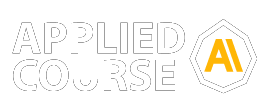IMPORTANT DATES
|
Registration Date |
||||||
|---|---|---|---|---|---|---|
| Name of Examination | Open | Close | Programme(s) | Institute(s) | Examintation Date | Link |
| GS-2022 | 8th Oct 2021 | 7th Nov 2021 | Ph.D | TIFR | 12th Dec 2021 | http://univ.tifr.res.in/gs2022/index.html |
| JEST | Ph.D / Integrated Ph.D | IMSc | https://www.jest.org.in/joint-entrance-screening-test | |||
| PGEE | M. Tech, M.S, Ph. D | IIIT Hyderabad | http://pgadmissions.iiit.ac.in/pgee.html | |||
| CMI | After March 2022 | M.Sc. / Ph. D | CMI | https://www.cmi.ac.in/admissions/ | ||
| ISI 2022 | M.Tech / Ph. D | ISI Kolkata | https://www.isical.ac.in/~admission/ | |||
| IIIT Delhi | M.Tech | IIIT Delhi | https://www.iiitd.ac.in/admission/mtech/2021 | |||
| BITS HD | M.E | BITS Pilani, Hyderabad, Goa | https://www.bitsadmission.com/hdmain.aspx | |||
| OCES/DGFS - 2022 | M.Tech | BARC | https://barconlineexam.in/science/index.html | |||
| ISRO | Scientist / Engineer | ISRO | https://www.isro.gov.in/ | |||
-
GS-2022: Graduate School Admissions
Programme: Computer & Systems Sciences (including Communications Machine Learning) Ph.D. and Integrated M.Sc.-Ph.D. Programs
Institute: School of Technology & Computer Science (STCS), TIFR, Mumbai
Eligibility:
For Ph.D. : B.Tech./B.E./B.Sc.(4-year degree)/M.Tech./M.E./M.C.A./M.Sc. or equivalent degree in Computer Science / Electronics & Communications Engineering / Electrical Engineering or related branches. Exceptionally well qualified students with a B.Tech./ B.E./B.Sc. (4-year degree)/M.Tech./M.E./M.Sc. degree in other disciplines may also be considered. Candidates not holding a master’s degree can obtain an M.Sc. degree by fulfilling the prescribed requirements during their Ph.D. programme.
For I-Ph.D. : B.Sc. (3-year degree) or any other 3-year degree in Computer Science / Electronics & Communications Engineering / Electrical Engineering or related branches. Exceptionally well-qualified students with a 3-year undergraduate degree (B.Sc.) in related subjects may be considered for the I-Ph.D. programme. Candidates in the I-Ph.D. programme will need to fulfill the requirements for both an M.Sc. and Ph.D.; upon successful completion, they will receive both degrees.
Syllabus:
COMPUTER SCIENCE- Discrete Mathematics: Sets and Relations, Combinatorics (Counting) and Elementary Probability Theory, Graph Theory, Propositional and Predicate Logic.
- Formal Languages, Automata Theory and Computability.
- Data Structures and Algorithms: Arrays, Lists and Trees, Sorting and Searching, Graph algorithms, Complexity of problems and NP-completeness.
- Fundamentals of Programming Languages and Compilers: Control structures, Parameter passing mechanisms, Recursion, Parsing and type checking, Memory management.
- Operating Systems and Concurrency
- Switching Theory and Digital Circuits
- Theory of Databases
- Engineering Mathematics: Complex Analysis, Linear Algebra, Elementary Numerical Analysis, Basic Optimization Theory and Algorithms, Introduction to Probability Theory and Statistics.
- Electrical and Computer Sciences: Introduction to Signals and Linear Systems Analysis, Control Systems, Digital Signal Processing, Basic Circuit Theory, Introduction to Digital Communications, Digital Computer Fundamentals, Introduction to Computer Programming.
Previous Year Question Paper:
https://drive.google.com/drive/folders/1qnSMuGC0hxy8qL_TkBgOWxRWa4LmO07P?usp=sharing -
JEST: Joint Entrance Screening Test
Programme: Theoretical Computer Science
Institute: Institute of Mathematical Sciences, Chennai
Eligibility: M.Sc./ M.E. / M.Tech. in Computer Science and related disciplines, and should be interested in the mathematical aspects of computer science.
Syllabus: Analytical Reasoning and Deduction, Combinatorics, Data Structures and Algorithms, Discrete Mathematics, Graph Theory, Principles of Programming.
Sample Paper: https://www.jest.org.in/sites/default/files/tcs-prepinfo_1.pdf - PGEE: Postgraduate Entrance Examination
Programme: M.Tech Computer Science and Engineering, M.Tech Computer Science and Information Security, M.S. Computer Science and Engineering and Ph.D. Computer Science and Engineering
Institute: Informational Institute of Information Technology (IIIT) Hyderabad.
Eligibility: http://pgadmissions.iiit.ac.in/Eligibility-list.html
Syllabus:
General Aptitude
This paper will emphasize on Basic aptitude, Logical reasoning and basic questions on computers and mathematics.
Computer Science and Engineering
Discrete Mathematics, Fundamental Programming Concepts, Control Flow, Functions, Recursion, Basic Data Structures, Basic algorithms, Boolean Algebra, Digital Building Blocks, Karnaugh's Maps, Computer Organisation, Number Systems. Capability to write programs in C or C++ is expected, Relational Databases (Functional dependencies, SQL), Computer Networks, Operating Systems.
Sample Paper: https://gate.appliedcourse.com/pgeecspapers - CMI: Chennai Mathematical Institute Written Test
Programme: M. Sc. in Computer Science, M. Sc. in Data Science and Ph. D. in Computer Science
Institute: Chennai Mathematical Institute (CMI)
Eligibility:
M.Sc. in Computer Science: Undergraduate degree (BA, BSc, BE, BTech, …) with a strong background in computer science.
M.Sc. in Data Science: Undergraduate degree (BA, BSc, BE, BTech, …) with a background in mathematics/statistics/computer science.
Ph.D. in Computer Science: B.E/B.Tech/M.Sc.(C.S.)/M.C.A.
Syllabus:
MSc/Ph.D. Computer Science
The entrance examination is a test of aptitude for Computer Science featuring both multiple-choice questions and problems requiring detailed solutions drawn mostly from the following topics: discrete mathematics, algorithms, basic computer organization, and some programming.
https://www.cmi.ac.in/admissions/syllabus/pgcs-syllabus.pdf
M.Sc. Data Science
The entrance examination is a test of aptitude in mathematics, statistics and computer science. The questions will test familiarity with school level mathematics, discrete mathematics, probability theory, logic, and programming.
https://www.cmi.ac.in/admissions/syllabus/datascience-syllabus.pdf
Previous Year Question and Solution:
https://drive.google.com/drive/folders/1UWeOO19yXfoWZJzu_1iza1T_m0wL6BCJ?usp=sharing - ISI 2022: ISI Admission Test 2022
Programme: JRF in Computer Science
Institute: Indian Statistical Institute (ISI) Kolkata
Syllabus:
https://www.isical.ac.in/~admission/IsiAdmission2017/PreviousQuestion/Questions-Jrf-CS.html
Sample Paper:
https://drive.google.com/drive/folders/159gob0KKgYhE-bzwnG7UhxDqNojoA8Sd?usp=sharing -
BITSHD: Birla Institute of Technology and Science (BITS) Higher Degree (HD)
Programme: M. E. Computer Science, M. E. Software Systems
Institute: Birla Institute of Technology and Science
Eligibility: A minimum of 60% for M.E. in the qualifying Degree examination. Admission to all M.E. (except Software systems) programmes will be made on the basis of marks obtained in the BITS HD admission test or based on GATE score. Admission to M.E. in Software Systems will be through the BITS HD test only.
Syllabus:- Test I: Duration: 45 Minutes Total no. of questions: 30
Test I is compulsory for all students who are applying for any of the Higher Degree programmes of the Institute and will consist of the following sections:
Sections No. of Questions
Core Mathematics 15
English Language Skills & Logical Reasoning 15
Total 30
- Test II: Duration: 105 Minutes Total no. of questions: 70
- Test for Software Systems: Duration: 60 Minutes Total no. of questions: 50
https://www.bitsadmission.com/hd/HD-2020%20Brochure.pdf - Test I: Duration: 45 Minutes Total no. of questions: 30
- IIIT-D: Indraprastha Institute of Information Technology Delhi Written Test and Interview
Programme: M.Tech in CSE with Artificial Intelligence , M.Tech in CSE with Data Engineering, M.Tech in CSE with Information Security, M.Tech in CSE with Mobile Computing and M.Tech in CSE
Institute: Indraprastha Institute of Information Technology (IIIT) Delhi.
Eligibility: Both GATE and Non-GATE candidates with B.Tech./BE or MCA/MSc in CS/IT(& its allied areas) with 65% marks are eligible to apply for admission. IIIT-Delhi provides relaxation to SC, ST, OBC, PwD and CW category candidates. Specifically, candidates under these categories must have 60% in their qualifying degree. Applicants who do not satisfy the above criteria will not be considered for admission.
Syllabus:
General Aptitude
Verbal Ability: English grammar, sentence completion, verbal analogies, word groups, instructions, critical reasoning and verbal deduction.
Numerical Ability: Numerical computation, numerical estimation, numerical reasoning and data interpretation.
Computer Science and Engineering
Section 1: Engineering Mathematics
Discrete Mathematics: Propositional and first order logic. Sets, relations, functions, partial orders and lattices. Groups. Graphs: connectivity, matching, coloring.
Combinatorics: counting, recurrence relations, generating functions.
Linear Algebra: Matrices, determinants, system of linear equations, eigenvalues and eigenvectors, LU decomposition.
Calculus: Limits, continuity and differentiability. Maxima and minima. Mean value theorem. Integration.
Probability: Random variables. Uniform, normal, exponential, poisson and binomial distributions. Mean, median, mode and standard deviation. Conditional probability and Bayes theorem.
Section 2 – 10: Computer Science and Information Technology
Section 2: Digital Logic
Boolean algebra. Combinational and sequential circuits. Minimization. Number representations and computer arithmetic (fixed and floating point).
Section 3: Computer Organization and Architecture
Machine instructions and addressing modes. ALU, data‐path and control unit. Instruction pipelining. Memory hierarchy: cache, main memory and secondary storage; I/O interface (interrupt and DMA mode).
Section 4: Programming and Data Structures
Programming in C. Recursion. Arrays, stacks, queues, linked lists, trees, binary search trees, binary heaps, graphs.
Section 5: Algorithms
Searching, sorting, hashing. Asymptotic worst case time and space complexity. Algorithm design techniques: greedy, dynamic programming and divide‐and‐conquer. Graph search, minimum spanning trees, shortest paths.
Section 6: Theory of Computation
Regular expressions and finite automata. Context-free grammars and push-down automata. Regular and context-free languages, pumping lemma. Turing machines and undecidability.
Section 7: Compiler Design
Lexical analysis, parsing, syntax-directed translation. Runtime environments. Intermediate code generation.
Section 8: Operating System
Processes, threads, inter‐process communication, concurrency and synchronization. Deadlock. CPU scheduling. Memory management and virtual memory. File systems.
Section 9: Databases
ER‐model. Relational model: relational algebra, tuple calculus, SQL. Integrity constraints, normal forms. File organization, indexing (e.g., B and B+ trees). Transactions and concurrency control.
Section 10: Computer Networks
Concept of layering. LAN technologies (Ethernet). Flow and error control techniques, switching. IPv4/IPv6, routers and routing algorithms (distance vector, link state). TCP/UDP and sockets, congestion control. Application layer protocols (DNS, SMTP, POP, FTP, HTTP). Basics of Wi-Fi. Network security: authentication, basics of public key and private key cryptography, digital signatures and certificates, firewalls.
- OCES/DGFS - 2022: Orientation Course for Engineering Graduates and Science Postgraduates and DAE Graduate Fellowship Scheme for Engineering Graduates and Physics Postgraduates
Programme: Computer Science
Institute: Bhabha Atomic Research Centre (BARC)
Eligibility: B.E. / B.Tech. / B.Sc. (Engineering) / 5-year Integrated M.Tech. with a minimum of 60%* aggregate marks in one of the engineering disciplines (Computer Science / Computer Engineering / Computer Science & Engineering)
Syllabus: The syllabus for the Online Exam is specific to the Engineering discipline which a candidate has selected. The questions are intended to assess the basic understanding of subjects in the area of the Engineering/Science discipline selected by the candidate. The emphasis would be on the knowledge and problem-solving ability rather than on the memory of the candidate. General English, General Knowledge, Aptitude, etc are not assessed.
Sample Paper: https://drive.google.com/drive/folders/1RleeY6ME50NhisGtLbfPCbXFEBFNOHUl?usp=sharing - ISRO:ICRB:03:2019: Indian Space Research Organization: ISRO Centralized Recruitment Board
Position: Scientist/Engineer 'SC' (Computer Science)
Institute: Indian Space Research Organization
Eligibility: BE/ B.Tech or equivalent in First Class with an aggregate minimum of 65% marks or CGPA 6.84/10.
Previous Year Question Paper:
https://drive.google.com/drive/folders/1CWm0dhkoMC0-VVI9Wd724gEhY_8pwUl-?usp=sharing
© 2025 - All rights are reserved- AAIC Technologies pvt ltd

